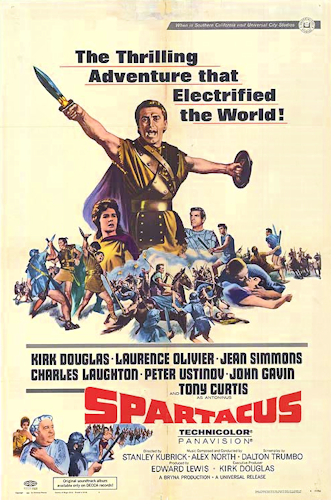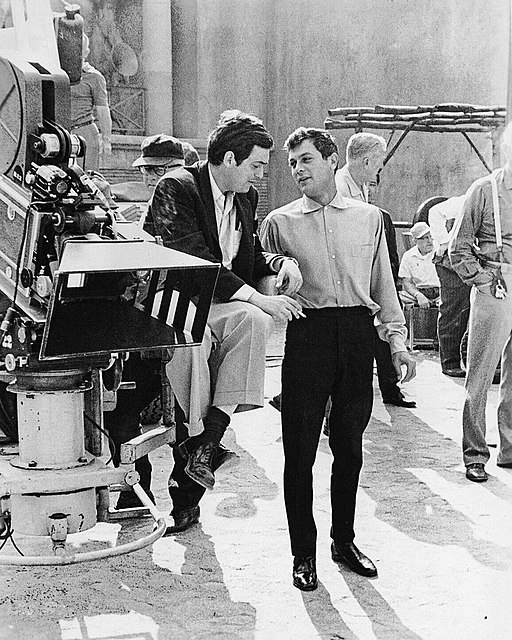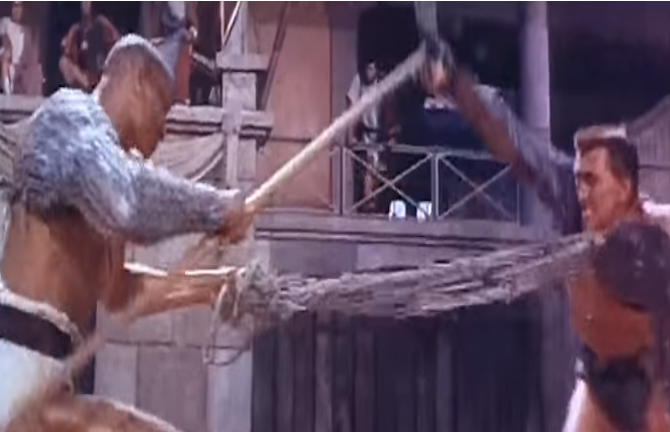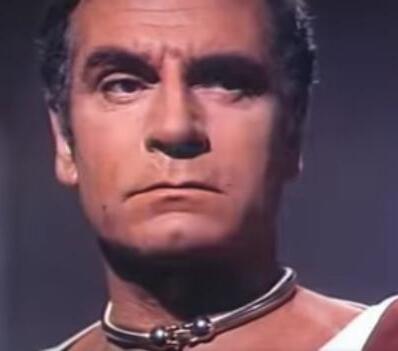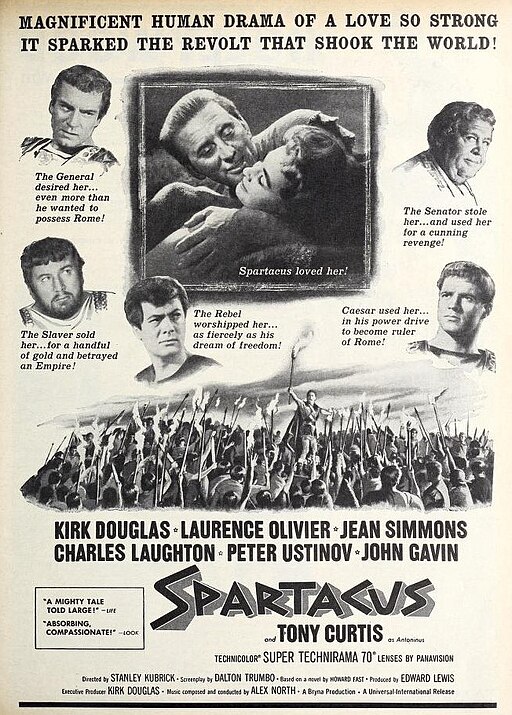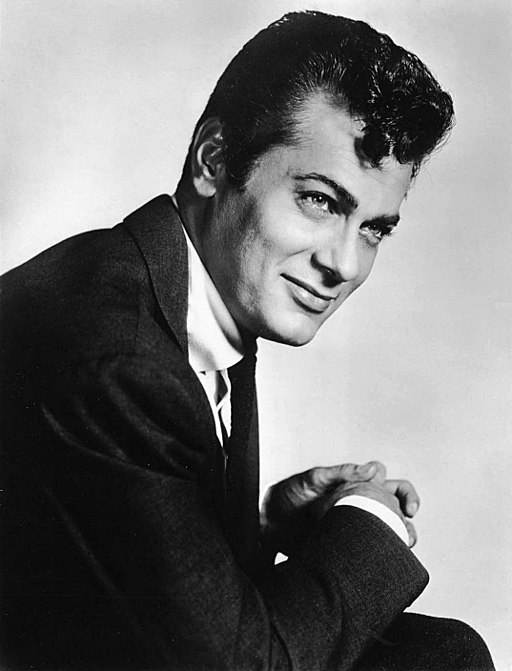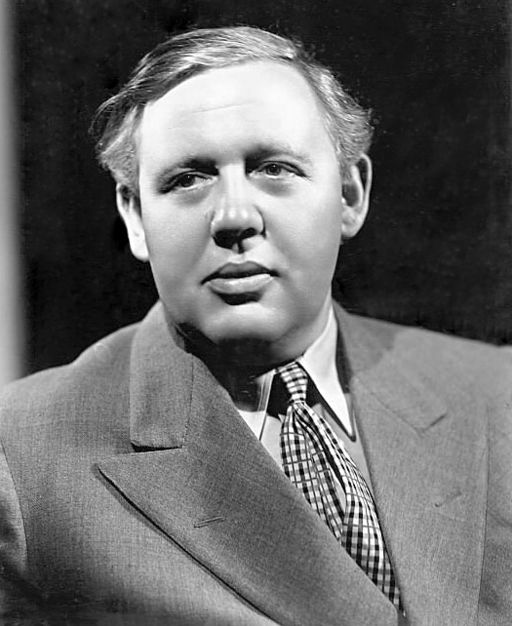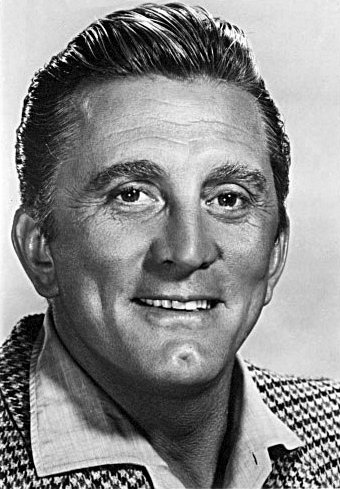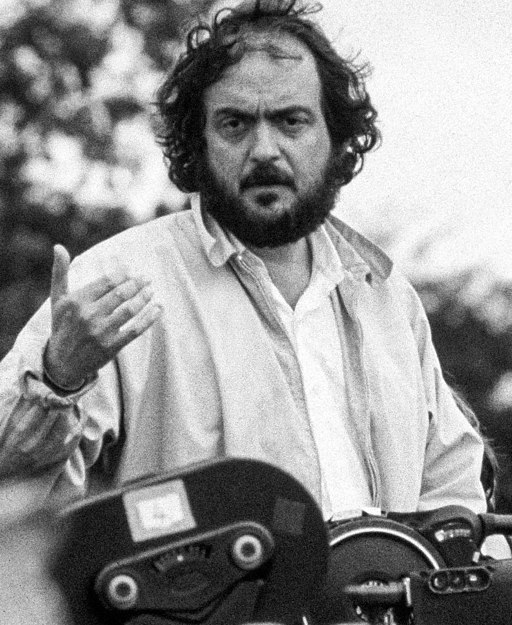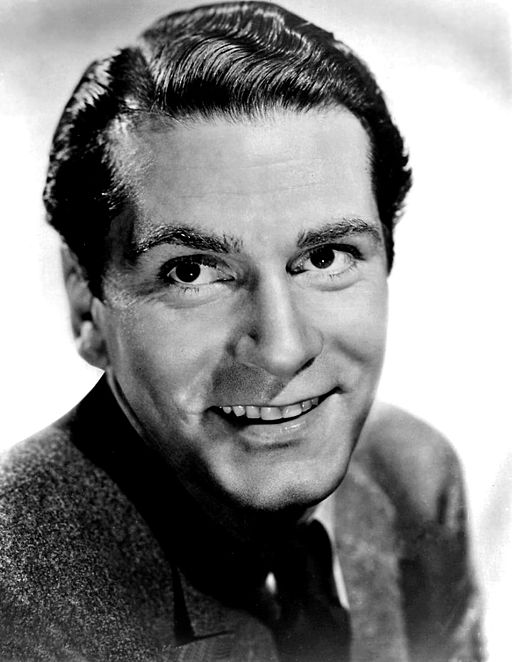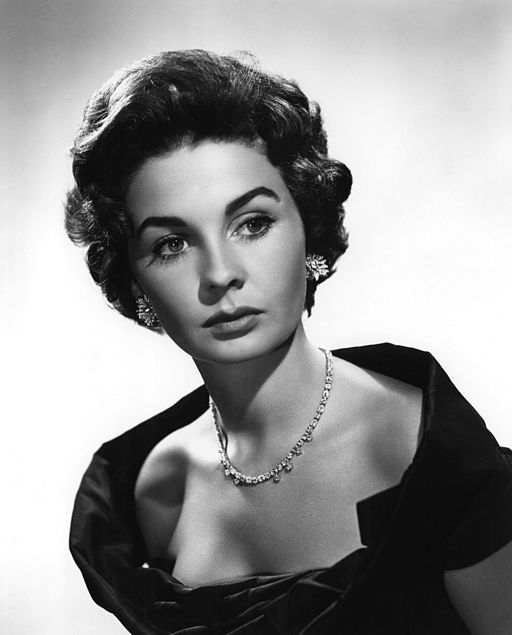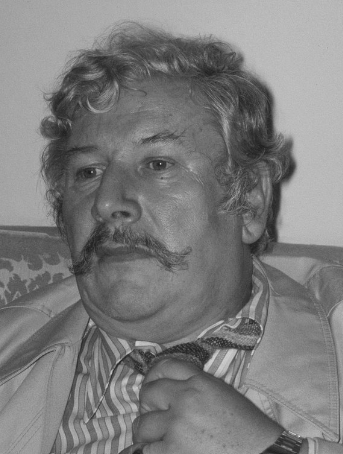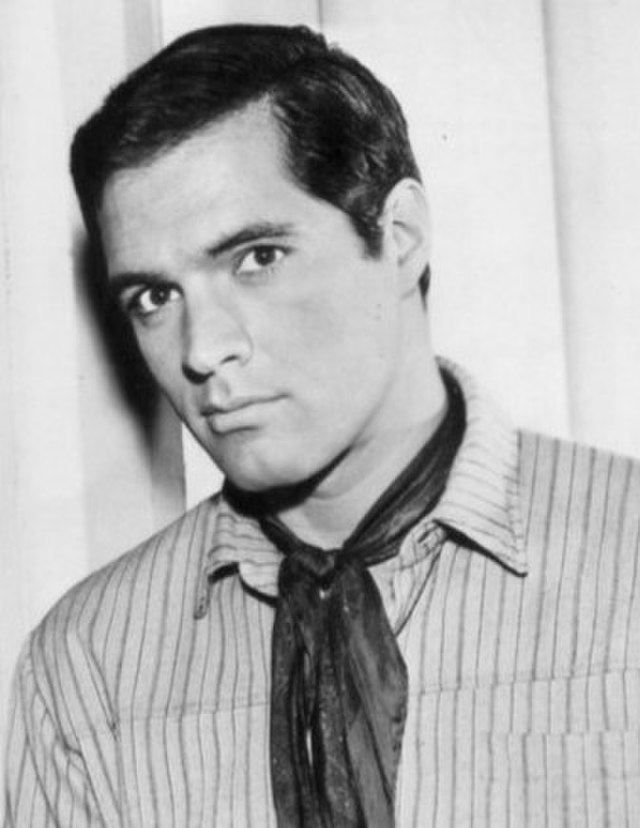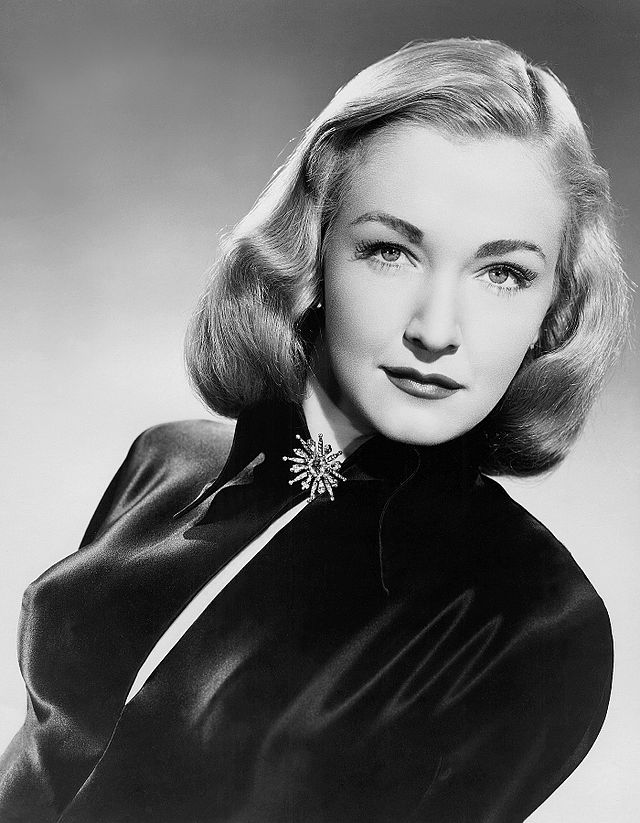Spartacus - 1960
back| Released by | Universal International |
| Director | Stanley Kubrick |
| Producer | Edward Lewis |
| Script | Dalton Trumbo, based on the 1951 novel |
| Cinematography | Russell Metty |
| Music by | Alex North |
| Running time | 197 minutes |
| Film budget | $12 million |
| Box office sales | $17 million (initial release) |
| Main cast | Kirk Douglas - Laurence Olivier - Jean Simmons - Charles Laughton - Peter Ustinov - Tony Curtis |
Spartacus
A Cinematic Journey of Rebellion and Resilience
"Spartacus" (1960), directed by Stanley Kubrick, is an epic historical drama based on the life of the titular Thracian gladiator who leads a major slave uprising against the Roman Republic.
Starring Kirk Douglas as Spartacus and Laurence Olivier as Crassus, the film traces Spartacus's journey from a slave to a rebel leader, highlighting themes of freedom, oppression, and human dignity. Notable for its grand scale, powerful performances, and political undertones, the film broke barriers by crediting blacklisted writer Dalton Trumbo, challenging the McCarthy-era Hollywood blacklist.
Its famous "I am Spartacus" scene symbolizes solidarity and resistance, embedding itself in popular culture. "Spartacus" is acclaimed for its blend of historical epic and social commentary, significantly impacting cinema and becoming a symbol of artistic integrity and political defiance.
Related
Spartacus – 1960
Summary and Analysis of Movie, Direction and Acting
"Spartacus" is an epic historical drama film released in 1960, directed by Stanley Kubrick and based on the novel of the same name by Howard Fast. The film is known for its grand scale, impressive performances, and its political underpinnings during the era of the Hollywood blacklist.
Summary:
Setting: The story is set in 73-71 BC during the time of the Roman Republic.
Plot Overview:
- Spartacus's Enslavement: The film opens with Spartacus, played by Kirk Douglas, as a slave in the Roman Republic. After being purchased by Lentulus Batiatus, he is trained at a gladiatorial school.
- Revolt and Uprising: Spartacus leads a revolt at the school, freeing himself and other slaves. They form an army of escaped slaves and begin a series of escapades, freeing more slaves and accumulating a formidable force.
- Romantic Element: Spartacus falls in love with a fellow slave, Varinia, portrayed by Jean Simmons, adding a human and emotional depth to his character.
- Conflict with Rome: The growing slave army poses a significant threat to Rome. The Roman Senate, led by politicians such as Crassus (Laurence Olivier) and Gracchus (Charles Laughton), debates how to respond. Crassus leads a massive army to crush the revolt.
- Betrayal and Capture: The slave army is eventually betrayed and defeated. Spartacus is captured in the aftermath.
- Climax: In a poignant scene, when asked to identify Spartacus in exchange for leniency, his followers each stand up and proclaim, "I am Spartacus!" demonstrating their solidarity.
- Conclusion: The film ends with Spartacus being crucified along the Appian Way, and although defeated, his spirit and fight for freedom are undying.
Analysis:
Themes:
- Freedom vs. Oppression: The core theme is the struggle for freedom against oppression. Spartacus's rebellion is a symbol of human resilience and the desire for liberty.
- Leadership and Sacrifice: Spartacus's character embodies leadership qualities and a willingness to sacrifice for the greater good.
- Political and Social Commentary: The film also subtly comments on contemporary issues, particularly relevant during the era of McCarthyism in the United States. It was seen as a metaphor for the fight against political oppression.
Cinematic Techniques:
- Epic Scale: Kubrick's direction and Russell Metty's cinematography capture the grandeur and brutality of ancient Rome.
- Character Development: The film excels in character development, particularly in portraying the depth and complexity of Spartacus and his antagonists.
Cultural Impact:
- "Spartacus" had a significant cultural impact. It was notable for breaking the Hollywood blacklist by crediting Dalton Trumbo, who had been blacklisted during the McCarthy era.
- The "I am Spartacus" scene has become iconic in cinema, symbolizing unity and defiance.
In conclusion, "Spartacus" is not just a historical epic; it is a film rich with political symbolism, human emotion, and profound themes that resonate with freedom and the human spirit. Its combination of historical drama, personal stories, and political undertones makes it a classic in cinematic history.
Full Cast of “Spartacus 1960":
- Kirk Douglas as Spartacus
- Laurence Olivier as Crassus
- Jean Simmons as Varinia
- Charles Laughton as Gracchus
- Peter Ustinov as Batiatus
- John Gavin as Julius Caesar
- Nina Foch as Helena Glabrus
- John Ireland as Crixus
- Herbert Lom as Tigranes Levantus
- John Dall as Marcus Publius Glabrus
- Charles McGraw as Marcellus
- Joanna Barnes as Claudia Marius
- Harold J. Stone as David
- Woody Strode as Draba
- Peter Brocco as Ramon
- Paul Lambert as Gannicus
- Robert J. Wilke as Guard Captain
- Nick Dennis as Dionysius (credited as Nicholas Dennis)
- John Hoyt as Caius
- Frederick Worlock as Laelius (credited as Frederic Worlock)
- Tony Curtis as Antoninus
Analysis of the Direction of Stanley Kubrick:
The direction of Stanley Kubrick in the 1960 film "Spartacus" is notable for several reasons, despite the film being more strongly associated with its lead actor and producer, Kirk Douglas. Kubrick, who became the director after Douglas fired the original one, brought his unique perspective to the film, though it wasn't wholly his vision.
- Human Nature and Social Evils: Film historian Gerald Mast notes that Kubrick's portrayal of social evils as human evils is a central theme, which applies to "Spartacus" as well. This perspective reflects a deep dive into the human condition, a common thread in Kubrick's work.
- Characterization and Ideological Underpinnings: The film depicts Spartacus (played by Douglas) as a Christ-like figure and a dreamer, resonating with the ideals of the 1960s, particularly the longing for the end of slavery. This portrayal aligns with the era's focus on civil rights and liberation.
- Political Dynamics: The film also explores the political landscape of ancient Rome, particularly the ambitions of Crassus and his desire to become a dictator. This aspect of the film adds a layer of political intrigue and demonstrates the slaves' role in the broader political game of the Roman elite.
- Class Warfare: "Spartacus" places significant emphasis on class struggle, a theme that mirrors the ideological battles of the 1960s. This element of the film, influenced by screenwriter Dalton Trumbo, who was blacklisted for his suspected communist sympathies, presents a clear dichotomy between the patricians and plebeians of Roman society.
Overall, Kubrick's direction in "Spartacus," though constrained by the film being a vehicle for Kirk Douglas, still showcases his ability to weave complex human emotions, societal critiques, and political narratives into an epic historical backdrop.
Analysis of Kirk Douglas’ Performance as Spartacus:
The role of Kirk Douglas as Spartacus in Stanley Kubrick's 1960 film is a multifaceted performance that blends physical prowess with intellectual and emotional depth.
Portrayal of Physical Strength and Leadership: As Spartacus, Douglas embodies the physicality and courage expected of a gladiator. His performance convincingly captures the transformation from a subdued slave to a charismatic leader who rallies other slaves to revolt against Roman oppression. The training scenes under Batiatus (Peter Ustinov) emphasize Spartacus's strength and fighting skills, which are central to his character as a gladiator. These scenes also subtly highlight the brutal conditions of the gladiatorial world, providing a backdrop against which Spartacus's leadership emerges.
Intellectual and Moral Fortitude: Douglas's portrayal goes beyond physicality. The film presents Spartacus as an intellectual force, dreaming of the end of slavery and rallying his followers with ideas as much as with swords. This aspect of the character is crucial, as it elevates him from a mere rebel to a visionary leader with a cause that transcends his own lifetime. It's this blend of physical strength and moral vision that makes Douglas's Spartacus an enduring symbol of resistance and freedom.
Breaking Hollywood Norms: Douglas's role in "Spartacus" was also significant off-screen. As one of the film’s producers, he was instrumental in hiring blacklisted writer Dalton Trumbo to pen the screenplay, ensuring Trumbo received proper credit. This bold move helped break the McCarthy-era blacklist, marking an important moment in Hollywood history. Douglas’s commitment to artistic and political integrity added a layer of real-world heroism to his portrayal of the fictional hero.
Navigating Cultural Contexts: The film, and Douglas's role within it, navigated the cultural and social norms of its time. The production faced challenges in portraying aspects of ancient Roman society, such as homosexuality, within the constraints of Hollywood's production code. The handling of these elements, including the nuanced presentation of Spartacus's character within this cultural milieu, demonstrates the careful balance the film struck between historical authenticity and contemporary sensibilities.
Analysis of Jean Simmons’s Performance as Varinia:
Jean Simmons' portrayal of Varinia in the film "Spartacus" is a compelling and nuanced performance that contributes significantly to the film's emotional depth and thematic complexity.
Role of Varinia:
- Emotional Anchor: Varinia is the love interest of Spartacus, but her role extends far beyond a mere romantic subplot. Her character serves as an emotional anchor for both Spartacus and the audience, providing a more personal and human dimension to the epic narrative. Her relationship with Spartacus evolves from a forced encounter to a genuine, deep connection, showcasing the possibility of love and humanity even amidst the harsh realities of slavery and rebellion.
- Symbol of Freedom and Humanity: Throughout the film, Varinia is portrayed as a resilient and dignified figure. Her initial refusal of Spartacus’s advances in his cell, and her journey through the film as she is bought and sold by various owners, highlight the dehumanizing aspects of slavery. However, her dignity and strength in the face of these trials emphasize her character's integrity and resilience.
- Quiet Strength: Simmons brings a quiet strength to the role. Her portrayal is subtle yet powerful, conveying a depth of emotion and resolve with minimal dialogue. This understated performance allows the audience to empathize with her plight and root for her eventual freedom and happiness.
Performance Analysis:
- Subtle and Powerful Acting: Simmons' performance is marked by its subtlety and emotional depth. She effectively portrays a wide range of emotions, from vulnerability and fear to love and quiet defiance, often with minimal dialogue. This subtlety makes her moments of strength and defiance all the more powerful.
- Chemistry with Kirk Douglas: Her chemistry with Kirk Douglas (Spartacus) is notable, providing a believable and moving portrayal of two individuals finding love and solace in each other amidst tumultuous circumstances.
- Contribution to Film's Themes: Varinia's character contributes significantly to the film's exploration of themes like freedom, love, and the human spirit under oppression. Simmons' portrayal ensures that Varinia is not just a secondary character but a vital part of the story that resonates with the audience.
Analysis of Peter Ustinov’s Performance as Batiatus:
Peter Ustinov's portrayal of Batiatus in "Spartacus" (1960) stands out as a memorable and multifaceted performance. Batiatus is the owner of the gladiatorial school where Spartacus is trained and plays a pivotal role in the early part of the film.
Character Overview:
- Batiatus as a Slave Owner: Ustinov's Batiatus is a shrewd and opportunistic slave owner. He is primarily driven by profit and the prestige that comes from owning successful gladiators. His character is emblematic of the Roman elite who view slaves as commodities to be exploited for personal gain.
- Complex Morality: Batiatus is not portrayed as a one-dimensional villain. Ustinov infuses the character with a certain charm and wit, making him somewhat likable despite his morally questionable actions. This complexity adds depth to the film, illustrating the nuanced social and moral landscape of ancient Rome.
Performance Analysis:
- Ustinov's Acting Skill: Peter Ustinov showcases his exceptional acting skills in this role. He delivers a nuanced performance that balances charm, cunning, and a hint of vulnerability. His ability to convey complex emotions and motives with subtle facial expressions and intonations adds layers to his character.
- Comic Relief: Ustinov also provides moments of comic relief in the film. His portrayal of Batiatus often lightens the otherwise intense and dramatic narrative, adding to the film's overall appeal and watchability.
- Interaction with Other Characters: The dynamics between Batiatus and other characters, especially Spartacus, are crucial. Ustinov's interactions with Kirk Douglas's Spartacus are charged with a mix of tension and mutual understanding, highlighting the complicated relationship between a slave and his master.
- Contribution to the Film's Themes: Through the character of Batiatus, the film explores themes of power, greed, and the dehumanizing aspects of slavery. Ustinov's portrayal brings these themes to life, offering insights into the motivations and mindset of those who perpetuated the system of slavery in ancient Rome.
Memorable Quotes from the movie “Spartacus”:
Spartacus' Leadership and Philosophy:
- "I'd rather be here, a free man among brothers, facing a long march and a hard fight, than the richest citizen in Rome: fat with food he didn't work for, and surrounded by slaves."
- "When a free man dies, he loses the pleasure of life. A slave loses his pain. Death is the only freedom a slave knows. That's why he's not afraid of it. That's why we'll win."
- "I am Spartacus!"
- "Take that back to your senate. Tell them you and that broken stick is all that's left of the garrison of Rome! Tell them we want nothing from Rome, nothing, except our freedom!".
Crassus' Ambition and Perspective:
- "If there was no Rome, I'd dream of her. If there were no gods, I'd revere them."
- "I promise you, a new Rome, a new Italy and a new empire. I promise the destruction of the slave army, and the restoration of order. I promise the living body of Spartacus for whatever punishment you may deem fit. That, or his head. This I have sworn, in the name of my fathers, in the temple that guards their bones."
- "I'm not after glory, I'm after Spartacus! And gentlemen, I mean to have him. However, this campaign is not about killing Spartacus. It is to kill the legend of Spartacus.".
Commentary on Roman Politics:
- "You know, this republic of ours is something like a rich widow. Most Romans love her as their mother, but Crassus dreams of marrying the old girl, to put it politely.".
Trivia for “Spartacus 1960”:
Where was Spartacus Filmed?
"Spartacus" (1960) was filmed in various locations, primarily in the United States. The film, known for its epic scale and grand set pieces, required diverse landscapes to depict the ancient Roman setting. Some of the key filming locations included:
- California: A significant portion of the film was shot in California. Various locations across the state provided the diverse landscapes needed for the film, from the Roman Senate to the gladiator battles and slave revolts.
- Death Valley, California: Some of the desert scenes were filmed in Death Valley. Its vast, barren landscapes were ideal for depicting the harsh conditions faced by Spartacus and his followers.
- Universal Studios, California: Many of the interior scenes and some of the larger set pieces were filmed on sound stages and backlots at Universal Studios. The studio's facilities allowed for the creation of detailed and controlled environments necessary for the film's more intricate scenes.
These locations provided the backdrop for the film's dramatic portrayal of ancient Rome and the epic journey of Spartacus and his followers. The choice of filming locations was instrumental in achieving the film's grand visual style and epic scope.
Awards and Nominations:
Academy Awards
- Won:
- Best Supporting Actor: Peter Ustinov
- Best Art Direction – Color: Alexander Golitzen, Eric Orbom, Russell A. Gausman, and Julia Heron
- Best Cinematography – Color: Russell Metty
- Best Costume Design – Color: Arlington Valles and Bill Thomas
- Nominated:
- Best Film Editing: Robert Lawrence
- Best Music Score of a Dramatic or Comedy Picture: Alex North
British Academy Film Awards (BAFTA)
- Nominated:
- Best Film: Stanley Kubrick
Golden Globe Awards
- Won:
- Best Motion Picture – Drama
- Nominated:
- Best Actor in a Motion Picture – Drama: Laurence Olivier
- Best Supporting Actor – Motion Picture: Woody Strode
- Best Supporting Actor – Motion Picture: Peter Ustinov
- Best Director – Motion Picture: Stanley Kubrick
- Best Original Score – Motion Picture: Alex North
Other Awards
- Golden Reel Awards:
- Won: Best Sound Editing – Feature Film
- Huabiao Awards:
- Won: Outstanding Translated Foreign Film
- International Film Music Critics Awards:
- Won: Best Archival Release of an Existing Score: Alex North; Robert Townson, Matthew Joseph Peak, and Bill Pitzonka
- Laurel Awards:
- Nominated: Top Male Dramatic Performance: Kirk Douglas
- Nominated: Top Male Supporting Performance: Peter Ustinov
- National Film Preservation Board:
- Inducted into the National Film Registry
- Online Film & Television Association Awards:
- Won: Hall of Fame – Motion Picture
- Saturn Awards:
- Won: Best DVD Collection (as part of the Stanley Kubrick: The Essential Collection)
- Writers Guild of America Awards:
- Nominated: Best Written American Drama: Dalton Trumbo
In total, "Spartacus" achieved 12 wins and 11 nominations, marking its significant success and recognition in various award categories

